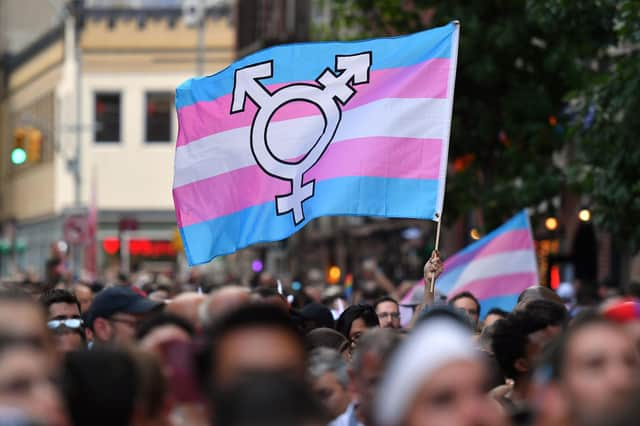Trans gender debate in Scotland: If you want to understand more, please try to speak to a trans person – Vic Valentine


Last week, a poll for the BBC found that out of 2,000-plus people in Scotland, only ten per cent had a family member or close friend who is trans, and just over half did not know a trans person at all.
This is a problem, because how can we decide what we think about something when we don’t know enough about it?
Advertisement
Hide AdAdvertisement
Hide AdMaybe a good place to start is what we mean when we say “trans person”.
The clearest way I can describe it is this: when a baby is born and the midwife says “it’s a boy!” or “it’s a girl!”, for almost everyone this will feel like a comfortable fit for how they think of themselves for the rest of their life.
Trans people are people who realise at some point that this “it’s a boy!” or “it’s a girl!” announcement does not match up with how we feel about ourselves, and who take steps to live our lives and be seen by others as who we feel we are instead.
Take myself, for example. I’m a non-binary trans person. This means I don’t feel like either of the terms man or woman describe who I am. After years of figuring this out, I realised that I needed to take steps to live my life more genuinely.
This involved coming out to friends and family – and letting them know that although they saw me as a woman, that wasn’t how I saw myself at all. I changed my first name. I asked people to start using gender neutral pronouns (“they” and “them”) for me, and most are happy to.
I decided to medically transition, which for me means taking hormones, and having some surgeries. I’ve changed the sex on my driver’s licence and my medical records (there’s only male or female options currently, but for me, of two imperfect ones, the ‘M’ is a much better fit than the original ‘F’).
Not all trans people do all of those things.
Some do the social ones – coming out, changing their name. People make highly personal choices about whether medical treatments are right for them. And some update certain identity documents but not others – perhaps because (such as the process for changing the sex on your birth certificate) it is so difficult, expensive, and intrusive that they don’t feel able to.
“Coming out” and “transitioning” can mean lots of different things, and there is no one set path all trans people will take. But what we all have in common is our sincere desire to be able to live our lives, and be seen by others, as who we really are.
Advertisement
Hide AdAdvertisement
Hide AdSo if you don’t know a trans person, and aren’t sure about what you see in the news, that’s totally fine. Most of us get that a lot of this is new for people, and that sometimes we might have to explain what our lives are really like, or what our identities mean for us.
But what we do ask is that if you do want to understand more, that you try, when you can, to hear from trans people ourselves.
Vic Valentine is manager of Scottish Trans
A message from the Editor:
Thank you for reading this article. We're more reliant on your support than ever as the shift in consumer habits brought about by coronavirus impacts our advertisers.
If you haven't already, please consider supporting our trusted, fact-checked journalism by taking out a digital subscription.
Comments
Want to join the conversation? Please or to comment on this article.
